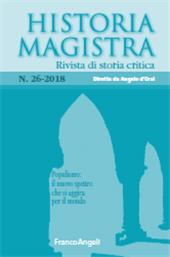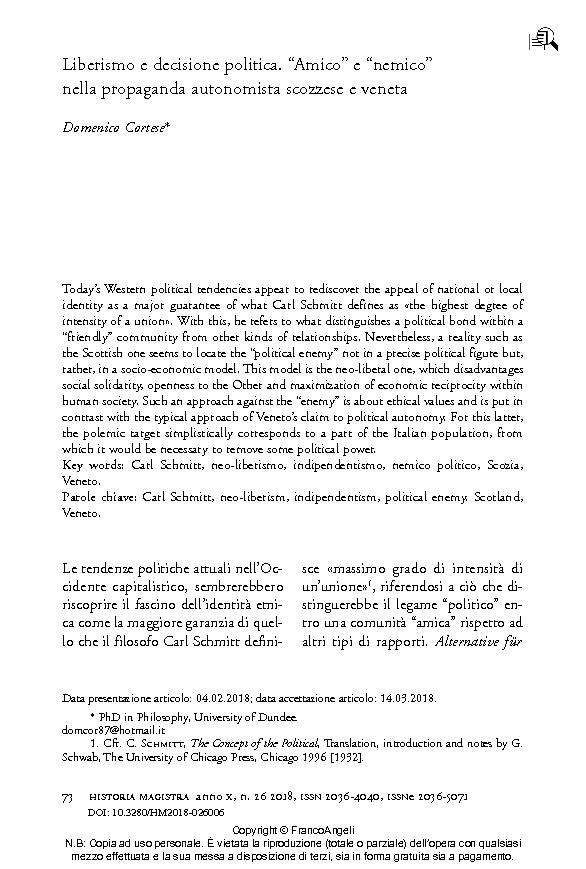Liberismo e decisione politica : amico e nemico nella propaganda autonomista scozzese e veneta
73-81 p.
Today's Western political tendencies appear to rediscover the appeal of national or local identity as a major guarantee of what Carl Schmitt defines as «the highest degree of intensity of a union». With this, he refers to what distinguishes a political bond within a "friendly" community from other kinds of relationships. Nevertheless, a reality such as the Scottish one seems to locate the "political enemy" not in a precise political figure but, rather, in a socio-economic model. This model is the neo-liberal one, which disadvantages social solidarity, openness to the Other and maximization of economic reciprocity within human society. Such an approach against the "enemy" is about ethical values and is put in contrast with the typical approach of Veneto's claim to political autonomy. For this latter, the polemic target simplistically corresponds to a part of the Italian population, from which it would be necessary to remove some political power. [Publishers' text].
Forma parte de
Historia Magistra : rivista di storia critica : 26, 1, 2018-
Artículos del mismo número (disponibles individualmente)
-
Información
Código DOI: 10.3280/HM2018-026006
ISSN: 2036-5071
KEYWORDS
- Carl Schmitt, neo-liberism, indipendentism, political enemy Scotland, Veneto
- Carl Schmitt, neo-liberismo, indipendentismo, nemico politico, Scozia, Veneto



